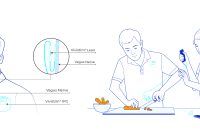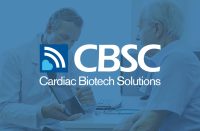IRVINE, Calif., May 18, 2020 /PRNewswire/ — Edwards Lifesciences Corporation (NYSE: EW), the global leader in patient-focused innovations for structural heart disease and critical care monitoring, today announced that it has received CE Mark for the Edwards PASCAL transcatheter valve repair system for the treatment of European patients with tricuspid regurgitation (TR).
“Although the prevalence of tricuspid valve disease and the associated mortality are high, there are limited effective treatment options for these very symptomatic patients, who often cannot have surgery due to the prohibitive risk,” said Prof. Jörg Hausleiter, MD, Medizinische Klinik der Ludwig-Maximilians-Universität München in Munich, Germany. “Transcatheter tricuspid therapy can be challenging due to the fragile leaflets and the large defects during valve closure. In our experience, the PASCAL system’s independent grasping ability as well as the flexible and less traumatic clasp design are important features for our patients.”
The PASCAL system is indicated in Europe for the percutaneous reconstruction of the tricuspid valve through leaflet repair by tissue approximation. The clasps and paddles gently grasp the leaflets to facilitate coaptation, while the spacer is designed to fill the regurgitant orifice area and prevent backflow. The clasps can be operated independently to facilitate optimized leaflet capture and the implant can be elongated to a narrow profile, allowing for safe maneuvering in dense chordal anatomy.
“Patients with tricuspid valve disease are in great need of solutions,” said Bernard J. Zovighian, Edwards’ corporate vice president, transcatheter mitral and tricuspid therapies. “Edwards is the first company to introduce multiple transfemoral tricuspid repair therapies in Europe, providing physicians with both leaflet repair and annular reduction therapies to help meet their patients’ needs.”
In early clinical experience, the PASCAL repair system demonstrated high procedural success and significant clinical improvements in patients with challenging tricuspid anatomy and severe TR. Sustained TR reduction was observed at 30 days, with 85 percent of patients seeing a reduction to TR ≤2+ on a five-grade scale.
Edwards continues to build a body of clinical evidence for transfemoral tricuspid therapies, including with the CLASP II TR pivotal study investigating the PASCAL system in patients with symptomatic functional or degenerative TR, the TRISCEND study investigating the EVOQUE system for tricuspid valve replacement, as well as real-world experience. The launch of the PASCAL system for the treatment of TR patients in Europe is focused on procedural success and differentiated patient outcomes, with a high-touch clinical support model.
The PASCAL repair system is not approved in the United States.
Prof. Jörg Hausleiter is a consultant for Edwards and a member of its Advisory Board, receiving compensation for services including proctoring, educational presentations, expert advice and R&D insights, as well as associated travel.
About Edwards Lifesciences
Edwards Lifesciences, based in Irvine, Calif., is the global leader of patient-focused medical innovations for structural heart disease and critical care monitoring. We are driven by a passion for patients, dedicated to improving and enhancing lives through partnerships with clinicians and stakeholders across the global healthcare landscape. For more information, visit Edwards.com and follow us on Facebook, Instagram, LinkedIn, Twitter and YouTube.
This news release includes forward-looking statements within the meaning of Section 27A of the Securities Act of 1933 and Section 21E of the Securities Exchange Act of 1934. These forward-looking statements include, but are not limited to Prof. Hausleiter’s and Mr. Zovighian’s statements, overall treatment benefits, early clinical experience results, clinical evidence, and expected patient outcomes. Forward-looking statements are based on estimates and assumptions made by management of the company and are believed to be reasonable, though they are inherently uncertain and difficult to predict. Our forward-looking statements speak only as of the date on which they are made and we do not undertake any obligation to update any forward-looking statement to reflect events or circumstances after the date of the statement. Statements of past performance, efforts, or results about which inferences or assumptions may be made can also be forward-looking statements and are not indicative of future performance or results; these statements can be identified by the use of words such as “continued,” “transform,” “develop,” “preliminary,” “initial,” diligence,” “industry-leading,” “compliant,” “indications,” or “early feedback” or other forms of these words or similar words or expressions or the negative thereof. Investors are cautioned not to unduly rely on such forward-looking statements.
Forward-looking statements involve risks and uncertainties that could cause results to differ materially from those expressed or implied by the forward-looking statements based on a number of factors as detailed in the company’s filings with the Securities and Exchange Commission including its Annual Report on Form 10-K for the year ended December 31, 2019 and the Quarterly Report on Form 10-Q for the quarter ended March 31, 2020. These filings, along with important safety information about our products, may be found at edwards.com.
Edwards, Edwards Lifesciences, the stylized E logo, CLASP, EVOQUE, PASCAL and TRISCEND are trademarks of Edwards Lifesciences Corporation and its affiliates. All other trademarks are the property of their respective owners. This statement is made on behalf of Edwards Lifesciences Corporation and its subsidiaries.
SOURCE Edwards Lifesciences Corporation







